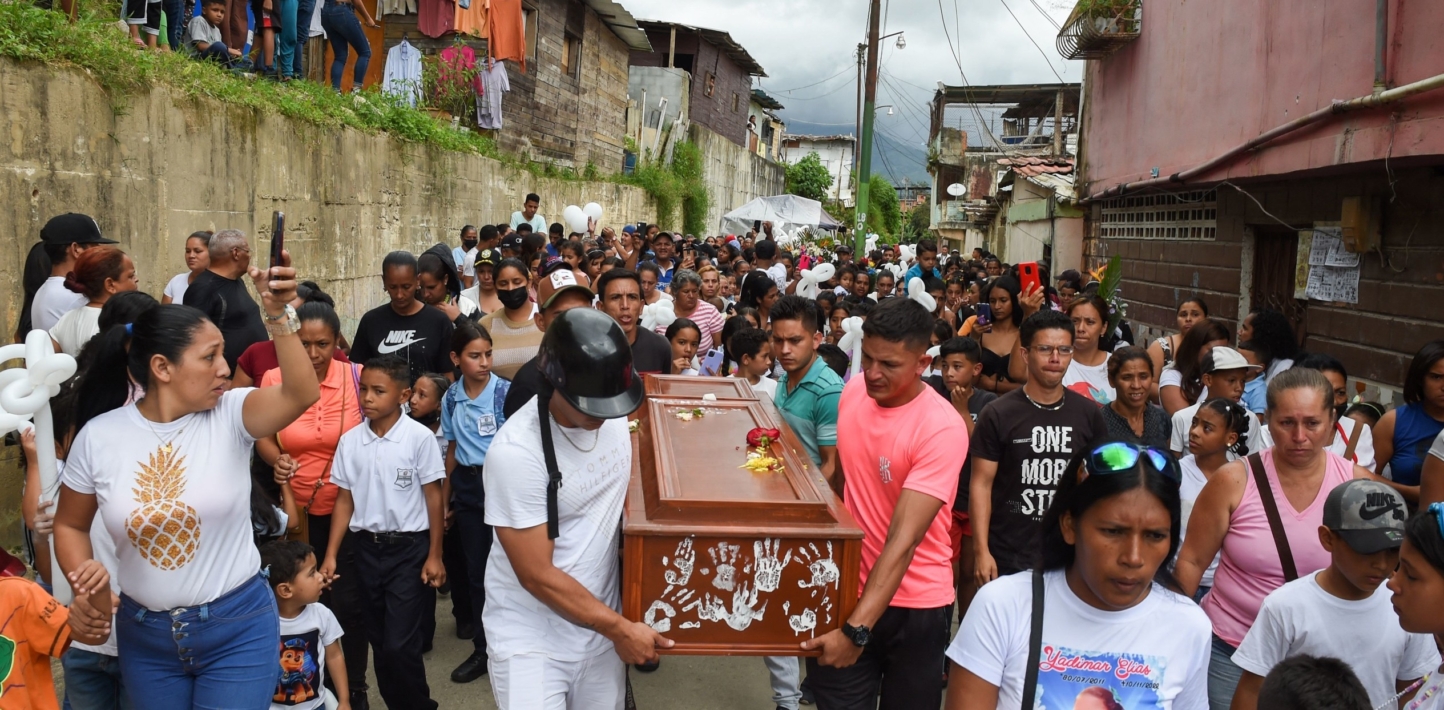The criminal complaint filed today before the Argentine federal courts by relatives of victims of crimes against humanity and the Clooney Foundation for Justice, regarding crimes under international law committed by the Venezuelan authorities, is an important step towards guaranteeing the rights to truth, justice and reparation for victims of serious human rights violations in Venezuela, said Amnesty International.
“In light of the criminal lawsuit filed in Argentina by relatives of victims of crimes against humanity committed in Venezuela, the Argentine justice system has an obligation to investigate these crimes and, if sufficient and admissible evidence is found, to charge and bring to justice the alleged perpetrators. The titanic efforts of the victims to obtain truth, justice and reparation, in the face of the impunity prevailing in Venezuela, with the invaluable support of organizations such as the Clooney Foundation for Justice, must not fall on deaf ears. Argentina’s federal courts cannot turn their back on victims; on the contrary, they must open the door to universal jurisdiction and set an important precedent for other countries in the region to follow the same course of action,” said Erika Guevara-Rosas, Americas director at Amnesty International.
This lawsuit is a response to the policy of repression designed and implemented by the government of Nicolás Maduro since 2014. This policy – which continues to be enforced – includes the commission of serious human rights violations and crimes under international law, including extrajudicial executions, torture and other ill-treatment, arbitrary detention, excessive use of force and politically motivated persecution.
The titanic efforts of the victims to obtain truth, justice and reparation, in the face of the impunity prevailing in Venezuela, with the invaluable support of organizations such as the Clooney Foundation for Justice, must not fall on deaf ears.
Erika Guevara-Rosas, Americas director at Amnesty International
Many international mechanisms and human rights organizations, including Amnesty International, have documented how these have become systematic and widespread attacks against those perceived to be opponents of the government, constituting crimes against humanity. The UN’s International Independent Fact-Finding Mission on Venezuela also supported this conclusion in 2019.
“The victims who have denounced crimes against humanity today have entrusted Argentina with their hopes for justice. Argentine courts have constitutional jurisdiction over these crimes not because of where they were committed or by whom, but because they harm humanity as a whole. We hope the Argentine justice system will rise to the challenge and uphold its historic tradition of prosecuting and punishing those responsible for these crimes at all levels,” said Mariela Belski, executive director of Amnesty International Argentina.
Further information
Under international law, all states are empowered to investigate and punish those responsible for crimes under international law. In some cases, this power becomes an obligation when the alleged perpetrator of a crime under international law is present in a territory under the jurisdiction of another state. According to the organization, the principle of universal jurisdiction has been recognized by at least 163 states – more than 85% of the countries in the world.
Amnesty International research on universal jurisdiction found that, between the end of World War II and 2011, at least 20 states conducted investigations, initiated trials or completed trials based on universal jurisdiction for the most serious crimes. These states include: Argentina, Australia, Austria, Belgium, Canada, Denmark, Finland, France, Germany, Israel, Mexico, the Netherlands, New Zealand, Norway, Paraguay, Spain, Senegal, South Africa, Switzerland, Sweden, the United Kingdom and the United States.
In the case of Argentina, this research highlighted the so-called “Argentine complaint“ initiated in 2010 into crimes under international law perpetrated in Spain during the government of Francisco Franco, and the investigation opened in 2021 on the possible genocide of the Rohingya people in Myanmar.


